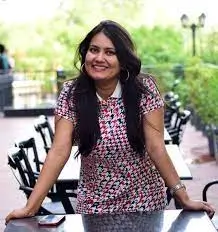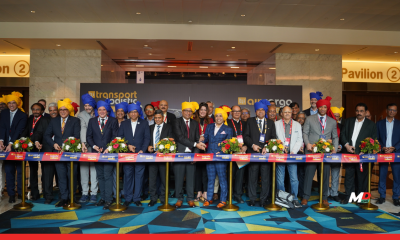Leadership
Breaking Barriers: Women Entrepreneurs Reshaping the Business Landscape
Published
1 year agoon

As Women Entrepreneurship Day dawns on November 19, a new generation of female business leaders continues to redefine success in the global marketplace. Despite facing persistent challenges in accessing capital and breaking into traditionally male-dominated sectors, women entrepreneurs are launching businesses at unprecedented rates, with studies showing they now account for nearly 40% of business owners worldwide.
Closer to home, women-owned businesses in India are a powerful economic force, generating approximately 8 million jobs according to World Bank data. While women entrepreneurs currently lead 20% of India’s enterprises, as reported by NITI Aayog in 2021, these businesses are predominantly rural, small-scale, and operate informally. This percentage is expected to reach 30% by 2030, highlighting a positive trend in women’s economic participation.
Despite this growth, female entrepreneurs encounter significant obstacles that often confine them to the informal sector. They face persistent gender biases and limited access to essential resources, including financing, technological tools, and market intelligence. Their underrepresentation in official statistics and restricted access to government support programs underscores the need for targeted initiatives to harness their untapped potential and create a more inclusive MSME landscape.
Women entrepreneurs face persistent barriers in accessing capital, receiving less than 3% of global venture capital funding despite their proven capacity for innovation and growth. Yet through peer networks, alternative funding platforms, and increasing institutional backing, they continue building transformative businesses that challenge industry norms and pave the way for future founders.
In India particularly, women entrepreneurs are driving meaningful innovation – developing scalable solutions to social challenges while building profitable, resilient enterprises. Their success is vital to unlocking India’s full economic potential, making it imperative to both recognize their impact and enact policies that actively enable their growth.
Ahead of this Women Entrepreneurship Day, we spoke with women entrepreneurs and leaders from multiple walks of industry to understand what it takes to create a more inclusive industry landscape, their words of wisdom, major learnings, and more.
Ahana Gautam, Founder & CEO, Open Secret

“I believe that to make the business world more inclusive for women entrepreneurs, we need to tackle biases that stem from a lack of representation in leadership roles and social conditioning. A classic example of this is a Harvard case study, where a leader was seen as a “rockstar” when identified as male but labelled “arrogant” when identified as female. This highlights the double standards that exist. Moving forward, I hope we can create a world where equal opportunities are truly available, and where merit is defined in a way that removes these biases, allowing both men and women to succeed based on their abilities, not gender.”
Naiyya Saggi, Co-founder, Good Glamm Group

“To create a truly inclusive business world for the next generation of women leaders and entrepreneurs, we need to break down systemic barriers and redefine leadership narratives. This means ensuring equitable access to funding, mentorship, and opportunities while fostering workplace cultures that value diverse perspectives. It’s not just about opening doors—it’s about building a foundation where women feel empowered to lead unapologetically and innovate boldly.”
Nita Kapoor, Co-founder, Integrated Insights Consultancy

“Women entrepreneurs in India have some ground to cover, and this will definitely happen once we see our share increase in the formal workforce which after Covid has taken a hit. Young women are full of ideas. However, their first choice as they pass out is to look for a job that leads to careers . Very few consider entrepreneurial opportunities and it is understandable at this early stage of work life as you have responsibilities and bills to pay.
For those who do consider being an entrepreneur, the questions they need to discuss with their mentors are: 1) What is the market need that I am fulfilling 2) Competition & Deep pockets 3) Sustainability of the idea 4) Scalability of the idea 4) Resource plan that is not a cash burn approach 5) Team that complements the business skills 6) Investors 7) Ability to pivot and change your strategy 8) Learn to exit 9) Celebrate both success and failures.
Most, if not all these skills, can be brought into the education curriculum ,with women leaders building the curriculum alongside faculty.”
Richa Jaggi, Co- Founder & CMO, Awshad

“The most significant leadership lesson I’ve learned is the importance of failing fast. We often get stuck in analysis paralysis, where decision fatigue becomes very real!! The key is to make decisions quickly, even if it means failing because failing fast allows you to move forward to the next decision. Many dreams stay on the back burner simply because that first step wasn’t taken.
Of course, this doesn’t mean taking reckless risks; it means making educated decisions based on your experience, knowledge, and expertise at the time. And Avoid “freeze mode,” and embrace the mindset of making quick, informed choices, even if they don’t always work out so that you can recalibrate and do it better again.
For aspiring women entrepreneurs, my advice is: don’t hesitate to ask for help. Whether it’s from your spouse/ partner, family, or friends, reaching out is not only okay but essential. Women are often expected to juggle multiple tasks, and while we’re known for our multitasking abilities, entrepreneurship adds new challenges. So ask for help—boldly and unapologetically—and get the support you need to thrive.”
Kaveri Nag, Head -Marketing & PR, Benetton India

“To create a more inclusive business world for the next generation of women entrepreneurs, we need to address the pervasive gender biases that continue to hinder their progress. Moreover, forecasts in finance or decisions made by women, especially in fields like technology and business strategy, are often questioned more than their male counterparts.
The future is about providing equal opportunities for all, regardless of gender, and recognizing that leadership and innovation can thrive when women are empowered to lead without any pre-conceived judgments.”
Ankita Mittal, CEO, Enhanced Innovations

“From the viewpoint of a woman entrepreneur, I would like to see more women-entrepreneur centric business forums. There are some networks that are doing this, but not at scale. Sometimes women entrepreneurs may feel like outsiders in a gathering where they are the minority. In addition to this, a lot of women entrepreneurs juggle between business and caregiving responsibilities. Building a supportive ecosystem where women have freedom to succeed on their own terms would help more women to step into the entrepreneurial landscape. The business world must evolve into an inclusive one with people, especially women from across backgrounds and personal situations are not just accepted but celebrated. Only then, a woman’s personal space and entrepreneurial mindset can tango.”
Shalu Jha, Co-Founder and CEO, PRandit Solutions

“There is a pressing need to have more women at the decision-making positions and executive levels within startups, incubators, and venture funds. Equal representation can bring policies for women entrepreneurs and better understanding of their problems. Women should be allowed to flourish their ideas in every playing field. Also, access to funding, mentorship and other opportunities should be equal and not determined by gender but by potential and talent. It’s time that the structural barrier which plagues the entrepreneurship landscape in India owing to the country’s patriarchal roots, should be done away with.”
You may like
-


Flipkart appoints Digbijay Mishra as new VP of Corporate Communications
-


Heavy hitting England face-off with India in Mumbai Semifinal
-


Fans roast Karan Aujla’s Mumbai concert
-


India’s Logistics Ambition on Full Display at Transport Logistic India and Air Cargo India 2026
-


Report: Mojtaba Khamenei named new Supreme Leader of Iran
-


Who is Ayatollah Alireza Arafi, Iran’s interim Supreme leader?


